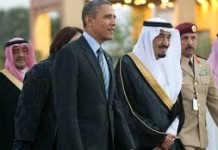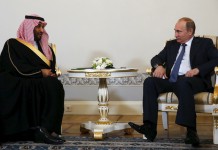Retaliation was expected from the Tehreek-e-Taliban Pakistan (TTP) for or a number of reasons, the most important being the death of Baitullah Mehsud; thus preventive and protective measure were in place. TTP has struck in Peshawar, Kohat, and Bannu, accompanied by assassinations of tribal leaders supporting the government backed militias, the lashkars.
The timing of the weekend attacks is noteworthy, as they occurred against the backdrop of the passage of the Kerry-Lugar bill and the meeting of President Zardari and the Friends of Democratic Pakistan, which he co-chaired with President Obama and Prime Minister Gordon Brown. The meeting was intended to demonstrate global support for Pakistan’s campaign against extremists. The purpose of the TTP’s attack, on the other hand, was to show that it is alive and kicking.
For the extremists to be able to once again penetrate the peripheries of the most secure areas of Peshawar tells volumes about the incapacity of the civilian security apparatus of NWFP/Pukhtunkhwa in particular and Pakistan in general. Like the earlier attack on the PC hotel in Peshawar, this incident could and should have been prevented. After all, three previous attacks have been attempted at the same location.
Here we examine the history of high-profile attacks on Saddar Bazaar in Peshawar and also propose some common sense countermeasures, much needed during times of heightened and unprecedented threat levels. Although these measures relate largely to Peshawar, they can also be successfully employed in other cities. We also look at the volatile geopolitics of the region, especially in light of the US decision to overhaul its missile defense system, to the delight of Russia.
Analysis
Taliban Targeting Pattern
Saddar Bazaar on the whole presents a valuable target area. Saddar and Qissa Khawani Bazaar are the two most well-known shopping centers of Peshawar. If Saddar is the shopping area of choice for the middle and upper-classes, Qissa Khawani is a ‘go to’ for working people and much less secure. Both were frequently attacked during the Soviet occupation of Afghanistan; the attacks were blamed on the Afghan Intelligence Service, KHAD. Over the years, the government has repeatedly failed to ensure the security of the Bazaar. Past incidents included the bombing of a general store, Wadud Sons, which resulted in the deaths of more than 40 people. In the 80s, a bombing destroyed the nearby office of the Pakistan International Airlines.
The exact location of the present attacks included a wedding hall, a popular upscale carpet shop often frequented by foreigners and a military-affiliated civilian bank, the Askari. It is worth noting that the exact location had already been subject to attack, albeit with less tragic consequences. The sorry performance of the civilian security apparatus is inexcusable.
Based on this anecdotal information PoliTact can confidently predict that due to the limited number of high value targets in Peshawar City, Saddar Bazaar will be the scene of more attacks if appropriate countermeasures are not taken immediately.
The TTP has the following targeting pattern:
- Pakistan military-affiliated businesses or in general, locations frequented by present or past military officials or their families (such as Askari Bank, Welfare Shops, etc.).
- Places frequented by foreigners, e.g., Aid and diplomatic officials (such as carpet shops and hotels).
- Clergymen outspokenly critical of Taliban teachings, tactics and strategies.
- Locations connected with Pakistan’s intelligence and security personal, including suspected locations of foreign security and intelligence officials (many of these are located in the Cantonment area and are often accessible from the Khyber Road).
- As in Iraq and Afghanistan, the Police.
Based on the above analysis, it’s not difficult to discover potential Taliban targets in a small city like Peshawar. The next target could easily be the shopping plazas that surround the suburb of University Town, where many foreign officials reside. Another one could be the residences of high-level government officials or the International Airport of Peshawar.
Counter Measures
It’s not enough to simply identify potential threats – one must suggest countermeasures. The following is a list of some simple and commonsensical counter-terrorism measures that can go a long way towards protecting the lives and property of citizens. All emphasize the involvement of the community in civil defense duties.
- Have best trained counter-terrorism experts and security personnel monitor the lower ranks of the police. These individuals often belong to the military. This will ensure that proper security procedures and protocols are being followed, especially during times of national and religious holidays, meals, prayers, night and shift rotation, etc. If this not already taking place, it should be given priority.
- Medium and large-size trucks should never be allowed access to sensitive facilities, so these facilities must not have adjacent parking lots in order to avoid falling victim to VBIEDs. This should be adopted as a standard security procedure.
- Peshawar’s Saddar Bazaar and many other shopping centers in the country are situated in extremely congested locations. Due to the country’s extraordinary security problems, vehicular traffic in these bazaars should be disallowed. The provision of parking lots that are a 10 to 15 minutes walk from the bazaars can go a long way towards removing the most dangerous threats. Most people will understand the need to exchange a measure of convenience for safety.
- Induct the private guards of the business and shops located in these bazaars into the government-sponsored Civil Security Awareness and Training Program. The objective of these short orientations should be to train these individuals in identifying potential trouble- makers (especially during the stage when extremists carry out surveying and target selection), in addition to providing a better understanding of countermeasures and reporting procedures.
- Use civilian transport system drivers, especially of buses, taxis and rickshaws, as informants to report suspicious activities in the city. Day laborers can also be very useful for monitoring purposes. Some of these techniques have been employed very successfully in Saudi Arabia.
- The Government should develop and sponsor a Community Security Awareness Program using media campaigns. The main goal of these campaigns should be to enhance public awareness of the fact that life cannot be expected to continue normally under the present security conditions; every citizen has an obligation to act as a security guard in his/her neighborhood, as is in countries like Israel, where college students are recruited into highly responsible civil defense and security duties. Pakistan can draw on the experience of the NCC (National Cadet Corps) for this purpose.
- Promote the use of Ring Road as a detour and alternative to the use of Khyber Road and possibly Jamrud Road as well. The use of Khyber Road for commercial traffic, or minimally to trucks and buses, should immediately stop during the emergency period. (If this measure was in place, the suicide attack on the PC Hotel could have been averted.)
Geopolitics
The Pakistani Army has every reason to launch the much-awaited ground operation against TTP in Waziristan, but it has to walk a sensitive line of non-interference with respect to the Afghan Taliban, who have remained friendly towards Pakistan. After the Swat Operation, the United States is once again ratcheting up the pressure. With the US and NATO increasingly caught up in a sticky position in Afghanistan, where the insurgency is fast getting out of control, Pakistan cannot escape some of the blame for the worsening situation there.
After the US decisions to revamp their missile defense system, Russia is courting Iran. How firm Russian and Chinese support of stronger sanctions against Iranian nuclear belligerence will be remains to be seen. Meanwhile China is gradually coming out more strongly against the growing US presence in Pakistan and Afghanistan. While there is again much talk in the media of US drone attacks and special forces raids in Quetta and other places, the goal appears more to pressure Pakistan into action in Waziristan than anything else.
From Pakistan’s point of view, the US will sooner or later have to realize that without talks with the Afghan Taliban, the situation in Afghanistan is not going to improve. By changing its stance on the missile defense system in regard to Russia, the US has probably convinced the Taliban that victory is just around the corner. The US needs the help of its ally, Pakistan, more than ever in order to deal with Afghanistan and understands that Pakistan’s willingness to act is predicated on considerations of its security interest vis-a-vis India, as well as the civilian and military aid promised to Pakistan under the Kerry-Lugar bill.
Although President Obama is now approaching a decision regarding a new strategy for Afghanistan, we believe that it will be difficult to reverse or alter the institutional momentum built up over the last eight years. Any change will most likely be incremental.
Tell Us What You Think
Feedback@politact.com



